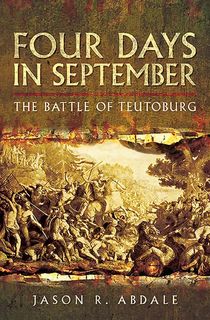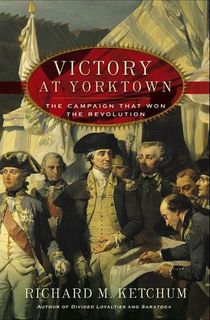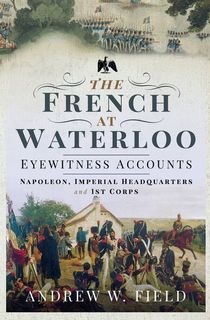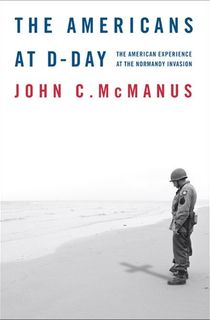We've all heard that history is written by the victors. War has changed our world, and our present-day lives have been shaped by the outcome of those conflicts. What might have happened if the United States lost the Revolutionary War? What if the Allied Powers had fallen short during World War II?
The fates of empires, nations, and everyday people have hung in the balance during wartime. But a war is made up of a hundred different aspects: the preamble, the leadership, the rank and file, and of course, the battles themselves. This list breaks down 13 of the most famous and influential battles in world history, from Thermopylae to Gettysburg.
1. The Battle of Muye (1046 BCE)

A bronze axe of the Shang dynasty
Photo Credit: Wikimedia CommonsThis list is filled with battles where one force massively outnumbers another, but few imbalances are as striking as the Battle of Muye, in which an army of around 50,000 soldiers of the Zhou tribes fought against more than 500,000 soldiers of the then-reigning Shang Dynasty, not to mention 170,000 armed slaves. However, not only did the Zhou prove to be superior soldiers, the majority of the slaves quickly defected to the side of the Zhou troops, which led many Shang soldiers to defect as well. The resulting battle led to the end of the Shang Dynasty and the beginning of the Zhou Dynasty, the longest-reigning Dynasty in the history of China.
2. The Battle of Thermopylae (480 BCE)
-.jpg?w=32)
"Leonidas at Thermopylae" by Jacques-Louis David, 1814
Photo Credit: Wikimedia CommonsLikely everyone reading this is familiar with the Battle of Thermopylae, thanks, if for no other reason, to the 2006 blockbuster 300. While the real encounter involved a few more than 300 Spartans—the headcount was closer to 2,000 troops total, made up of Spartans, Helots, Thebans, and Thespians—who held the pass at Thermopylae against the armies of the Persian King Xerxes, it was still a decidedly one-sided encounter. Yet the defenders held the pass for seven days, including two full days of battle, buying time that ultimately allowed the Greek forces to repel the Persian armies.
3. The Battle of Arbela (331 BCE)
-.jpg?w=32)
A Flemish tapestry depicting the Battle of Arbela, first half of 18th century
Photo Credit: Wikimedia CommonsAlso known as the Battle of Gaugamela, this marked the most decisive victory in Alexander the Great's ongoing campaign of conquest against the Persian Achaemenid Empire, and the beginning of that empire's fall. After his defeat in this battle, Persian king Darius III was betrayed and murdered by one of his satraps. Alexander the Great is said to have been distraught at seeing a respected enemy murdered in such a fashion, and to have given Darius III a full ceremonial burial before hunting down and executing his murderer.
4. The Battle of Zama (202 BCE)
-.jpg?w=32)
"The Battle of Zama" by Henri-Paul Motte, 1890
Photo Credit: Wikimedia CommonsThe Carthaginian general Hannibal is considered one of the greatest military leaders in history, and the march of his war elephants over the Alps and Pyrenees during the Second Punic War is among the most famous military maneuvers of all time. Unfortunately for him, even that had to come to an end, and it did when he met his greatest defeat in the Battle of Zama. It was here that Roman troops under the command of Scipio found a way to defeat his war elephants not by engaging them directly, but by distracting and spooking them before opening ranks and allowing them to charge through harmlessly.
5. Victory of Arminius over the Roman Legions (9 CE)
-.jpg?w=32)
Cenotaph of Marcus Caelius, 1st centurion of the Eighteenth Legion, who perished in the "Varian Disaster"
Photo Credit: Wikimedia CommonsIn what is also known as the Battle of the Teutoburg Forest, and what Roman histories called the "Varian Disaster," an alliance of Germanic tribes ambushed and destroyed no less than three Roman legions in the Teutoburg Forest in what is now northwest Germany. The Germanic tribes were led by Arminius, a Germanic officer in the Roman auxiliary who had received Roman military education, allowing him to anticipate the Roman army's tactics and use his knowledge against his enemies. Some historians view Arminius's victory as “Rome's greatest defeat.”
6. The Battle of Tours (732 CE)
-.jpg?w=32)
"Bataille de Poitiers en octobre 732" by Charles de Steuben, 1837
Photo Credit: Wikimedia CommonsMoorish general Abd-er Rahman led a Muslim army from Spain across the Pyrenees mountains and reached the French city of Tours. However, he was met by a poorly-armored force led by Frankish general Charles Martel which ultimately captured and killed Abd-er Rahman and drove back his army. Had the battle gone differently, many historians reckon that Islam would have become the dominant religion in Europe.
7. The Battle of Hastings (1066 CE)
-.jpg?w=32)
Scene from the Bayeux Tapestry depicting the Battle of Hastings and the death of Harold
Photo Credit: Wikimedia CommonsAccording to William the Conqueror, then the Duke of Normandy, Edward the Confessor, the previous king of England, had promised William the crown but changed his mind on his deathbed and passed on his kingship to Harold Godwinson. At the Battle of Hastings, William's forces defeated and killed Godwinson, and from there William marched on to London, becoming England's first Norman King and seriously disrupting the Anglo-Saxon rule of the land.
8. The Siege of Orléans (1429 CE)
-.jpg?w=32)
"Joan of Arc at the Siege of Orléans" by Jules Eugène Lenepveu, 1886–1890
Photo Credit: Wikimedia CommonsWhile some claim that the French victory against the English at Orléans saved France from potentially centuries of English rule, the battle is perhaps best known for the involvement of Joan of Arc, then only 17 years old, who arrived at the besieged French city, rallied the troops, and helped them retake the banks of the Loire River.
9. The 'Battle' of Cajamarca (1532 CE)

Atahualpa, the Incan Ruler
Photo Credit: Wikimedia CommonsCalling the events of 1532 in the great plaza of Cajamarca in what is now Peru a "battle" is inaccurate. It was actually an ambush. Spanish forces led by Francisco Pizarro invited Atahualpa, the ruler of the native Incan people, to Cajamarca to negotiate peace. However, when Atahualpa arrived with an unarmed contingent to show goodwill, leaving his army outside the plaza, the Spanish seized upon Atahualpa, slaughtering thousands of unarmed attendants and capturing Atahualpa himself. The ambush marked the beginning of the end of the Inca civilization.
10. The Surrender at Yorktown (1781 CE)
-.jpg?w=32)
"Surrender of Lord Cornwallis" by John Trumbull, 1820
Photo Credit: Wikimedia CommonsThere were many decisive battles during the Revolutionary War. Perhaps the most significant was when the British forces, led by General Charles Cornwallis, were defeated at Yorktown by combined American and French forces. Cornwallis ultimately surrendered, paving the way for the Treaty of Paris in 1783 and the formation of the United States.
11. The Battle of Waterloo (1815 CE)
-2.jpg?w=32)
"Scotland Forever!" by Elizabeth Thompson, 1881
Photo Credit: Wikimedia CommonsMany of the battles on this list are famous, but few have entered our common lexicon in the same way as the Battle of Waterloo. When British and Prussian forces crushed Napoleon's troops at Waterloo, it was the final defeat for the famous French general, whose armies had once seemed unstoppable as they marched across Europe. Today, just about any decisive or particularly crushing defeat may be referred to as one's "Waterloo."
12. The Battle of Gettysburg (1863)
-.jpg?w=32)
"Hancock at Gettysburg" by Thure de Thulstrup, 1886
Photo Credit: Wikimedia CommonsWhile Waterloo may top the list of famous battle names, Gettysburg isn't far behind. The defeat of the Confederate forces at Gettysburg, Pennsylvania, resulted in the largest number of casualties of the American Civil War and is cited by historians as the war's turning point.
13. Storming the Beaches at Normandy (1944)
-.jpg?w=32)
"Into the Jaws of Death" by Robert F. Sargent
Photo Credit: Wikimedia CommonsNo list of important battles is complete without one of the most famous—and most often depicted on film—clashes of all time. During what came to be known as D-Day, Allied forces began an all-out assault on the beaches of Normandy, France in the largest amphibious invasion in history. Within a month, more than a million soldiers had landed on the French coast. The battle is seen as one of the most important of the Second World War.
[via Wikipedia; Listverse; Listverse; Livescience]
Featured photo: Wikimedia Commons







